A CONVERSATION WITH PRINCE YEMISI SHYLLON: POST-INTERVIEW ANALYSIS, PART 3
(This is the third and final part of the interview report with Prince Yemisi Shyllon conducted on January 15, 2023. For the transcripts:
YouTube https://youtube.com/watch?v=QFMbXx6aRE4;
Facebook https://fb.watch/i458cu7phB/)
Dele Jegede in Conversation with Prince Yemisi Shyllon
Toyin Falola
In this last piece of the 3-part series emanating from the Toyin Falola Interviews with Prince Yemisi Shyllon, we will examine salient issues brought forward during the conversation between Professor Dele Jegede and the guest. It is a befitting coincidence that the dissection of this section of the interview session will begin with a discussion point that is synonymous with what served as the concluding aspect of the second piece in the series. In the last piece, I outlined a reawakening action plan from the concept of art and society, which could readily revive Nigeria from the destructive slumber it is in. However, for such a plan to work, there is the need for collaboration between the people and the government; the role of the government in the effectuation of that plan is as pivotal as that of the citizens. Then, the puzzle that serves as the opening of Professor Jegede’s session: art and the government, specifically, the Nigerian government.
In Nigeria, culture, art, creative art, and tourism are subsumed under the Federal Ministry of Information and Culture, headed at the moment by Alhaji Lai Mohammed. In 2019, marking four years after the emergence of Muhammadu Buhari as Nigeria’s president, Lai Mohammed revealed plans to, as he said, “transform Nigeria’s art, culture and tourism industry into Nigeria’s new oil within the next four years.” This year 2023 marks the last year for that plan, and suffice it to say 95% of the outlined projects have yet to be embarked upon or achieved — from the promised annual National Summit for Culture and Tourism to the Endowment Fund for the Arts, the promised National Tourism Day, Regional Summit on Culture and Tourism, among other lofty plans that the Minister made. It is no gainsaying that the Ministry’s focus in the past 8 years of the Buhari administration has been largely one-sided — more on information than culture.
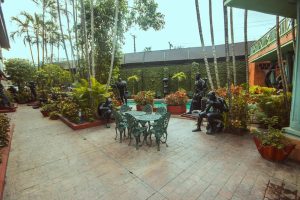
This is problematic for the Nigerian state, seeing as culture looms larger than information; it is supposed to shape how information is passed and received, and since there have been little to no attempts to solidify the existence of unified cultural values in the country, the resultant effect could be a misinterpretation of received information. Professor Jegede raised a thought-evoking point in his opening question: for the Nigerian government — through its Ministry of Information and Culture — art, culture, and tourism are nothing but optics; there is no real groundwork to revive, sustain, or promote these things. They are rather terminologies being deployed to show that the aspect of the ministry exists, words without corresponding substantial deeds.
Without mincing words, Prince Shyllon tapped into the foundations of this worrying problem in Nigeria, that culture is largely considered a synonym for traditional religion, and religion is but one of the several aspects of culture. As said before, culture is an aggregation of all aspects of a people’s life — it is alive; it breathes, grows, evolves, and gets added to. For instance, systemic corruption has quickly found its way into Nigerian culture. Culture extends beyond religion; it is, therefore, a false approach for Nigerians to consider culture as the sole religion. This false equivalence causes a dissociating attitude among the people, many of whom are either Christians or Muslims who do not want to have any affiliations with the traditional religions due to their adopted faith. However, the claim that culture is the same thing as religion could not be further from the truth; and it only serves to hamper the growth, preservation, and promotion of cultures in Nigeria, as the peoples of varying ethnic groups are expected to fully embrace their cultures and cultural practices are not doing so. The average person in Lagos or Port Harcourt is far removed from the realities of cultural festivals in their regions.
This disassociation from a culture based on the false equivalence of culture to religion also makes many desist from actively recognizing and adopting cultural values that would have served as a portal to mitigating societal vices. The concepts of contentment, virtue, communalism, charity, goodness, and kindness, among others, are embedded in the cultural values of ethnic groups across the country — from the Yoruba to the Igbo to the Hausa to the Tiv. However, these values are being lost to the absence of cultural cohesion among the people, a calamity that can be directly linked to the intentional decision of the people to desist from cultural affiliations and participation.
This fundamental problem also affects the government’s approach to culture since the government is inherently made up of Nigerians, who most likely share the views and biases of the other Nigerians, largely considering art as religion. Furthermore, this problem extends its effects into how the people react to the government’s treatment of and lack of attention to the art and culture arm of the said ministry. If the people are not motivated enough to actively demand a revamp of the culture, art, and tourism industries and if there are no advocacies for this revamp, the government can as well turn a seemingly blind eye to the work that needs to be done.
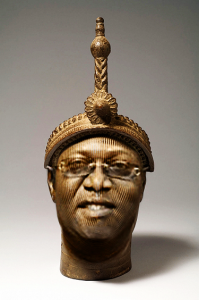
In Nigeria, two elements of culture — art and music — have been part of the biggest image makers for the country in the international space, even amidst the name-spoiling effects of corruption, internet fraud, and illegal migration that have largely affected the country’s image negatively. Nigerian music — especially Afrobeat — has received widespread acclaim and recognition in the international space. Nigerian artists — literary, visual, creative, and performing — are also doing exploits in poetry, prose, and artwork, bringing fame and glory to the country. If properly invested into and if adequately leveraged, these forms of art in Nigeria can serve as an avenue to boost the country’s economy, international exposure and recognition, and also create a worldwide ecosystem that rewards the country for its culture and art.
It will take a reorientation of the Nigerian people on what culture is, its varying aspects, and the potential that cultural elements hold when properly leveraged for the country to arrive at a profitable system. It goes beyond merely representing a plan to make art the country’s new oil. That only echoes what Professor Jegede said about art and culture being nothing but a means of publicity and propaganda in the country. A reorientation like this is what the Yoruba Cultural Center in Dallas does, investing time, money, and resources into teaching several elements of the Yoruba culture to Yoruba people in the diaspora, many of whom would not have had any access to their cultural roots and identity without an institution like this.
There is a developing argument, though without data at the moment, that the average consistent attendee of the Yoruba Cultural Center in Dallas would, in the end, may have a deeper knowledge of Yoruba proverbs, maxims, art, dance, and festivals — in sum, culture — than an average Yoruba person living in Nigeria. As this new argument goes, the only advantage a Yoruba person living in Nigeria could have over the average person learning from the Center in Texas is the fluency of pronunciation and language use, which is largely due to the frequency of usage of the language in Nigeria, as compared to the United States — a Yoruba person in Nigeria would have more access to Yoruba people, which would aid communication and language fluency.
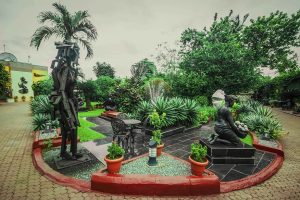
However, considering that there has been a serious deviation from cultural roots and an erosion of the younger generation’s knowledge of customs, proverbs, idioms and maxims, traditional dances and other core elements of the Yoruba culture, the average Nigerian Yoruba, it is now being feared, would not match up to the knowledge of the learner in the diaspora. This phenomenon is not exclusive to learners at the Yoruba Cultural Center in Dallas alone. Foreign learners of the language and culture of Yoruba at the University of Ibadan Yoruba Language Center will also best many indigenous Yoruba people in using idioms and knowledge of the culture.
This is because the indigenous people are largely deviating from learning about their culture and the deep levels of the language beyond the surface, everyday usage on the streets of Lagos or in palm-wine stalls in Ondo. Limiting a people’s culture to their religion and language is dangerous, yet this is one of Nigeria’s biggest problems. So much so that people believe they have enough knowledge of their culture when they can speak their ethnic group’s language. There is a need for an intervention from the government on this. However, the problem goes beyond the government and requires the people’s readiness. A case in point is a long-time government intervention for cultural integration — the National Youth Service Corps. Today, this scheme has been bastardized, and year in, year out, the country is witnessing a mass redeployment of corps members who are not willing to live among Nigerians of other cultures and ethnic groups for just a year. This speaks so much about how culture is viewed among Nigerians and some reasons why the country is where it currently is in terms of cohesion and national unity.
Cultural institutions in Nigeria serve the purpose of existence rather than having specific essence. This is further manifested in how these institutions are run. The administrators of the cultural institutions in the country do not see their role beyond their tasks; there is no underlying zeal for the promotion and propagation of culture and art. Therefore, they discharge their duties when needed but never go out of their way to attract people to their institutions. In this age of the internet frenzy and social media buzz, how many of our cultural institutions in Nigeria have an online footprint? How many of them are making efforts to reach young Nigerians? How many are pushing to stay visible and relevant?
The task ahead for us Nigerians — the people and the government — is to see culture as an all-encompassing cloak on our existence and identity as a people and make efforts to save that cloak from tearing beyond repair. We will get closer to redeeming this country when we have given attention to saving and salvaging the Nigerian culture and bringing a unified Nigerian culture to the fore.
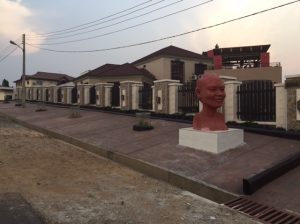
(This is the third and final part of the interview report with Prince Yemisi Shyllon conducted on January 15, 2023. For the transcripts, see:
YouTube https://youtube.com/watch?v=QFMbXx6aRE4;
Facebook https://fb.watch/i458cu7phB/)

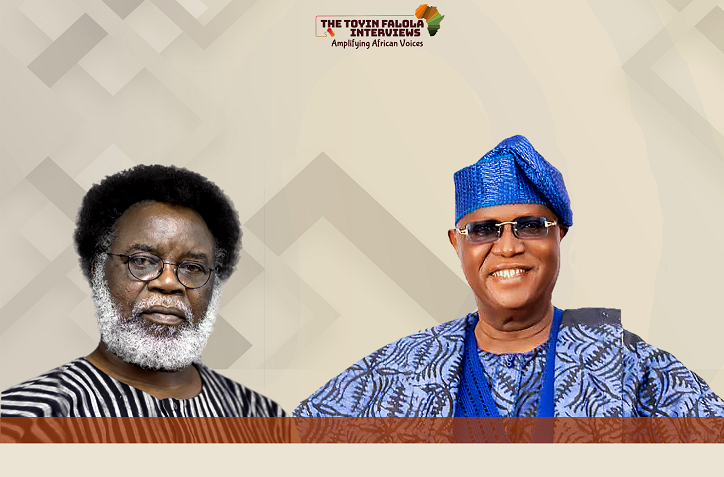












You must be logged in to post a comment.